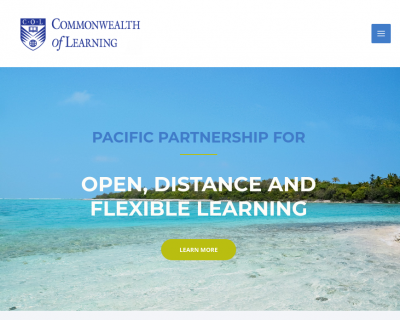MODFL/About
This section provides information about the Pacific Partnership for Open, Distance and Flexible Learning, and the Mainstreaming Open Distance and Flexible Learning (MODFL) online course.
Contents
About the Pacific Partnership for Open, Distance and Flexible Learning
Partnership for Open, Distance and Flexible Learning (ODFL) in the Pacific is a 5-year project (2020 – 2025) funded by the New Zealand Ministry of Foreign Affairs & Trade to support enhancing capacity and efficiency of education sectors in the Pacific through greater use of innovative delivery mechanisms and technology.
The Commonwealth of Learning (COL), together with the Pacific Centre for Flexible and Open Learning for Development (PACFOLD) are implementing the initiative.
About the MODFL online course
Mainstreaming Open Distance and Flexible Learning (MODFL) was developed by Saide [1] for the Pacific Partnership for Open, Distance and Flexible Learning.
Summary
| Course code | MODFL |
| Duration | 4 weeks |
| Workload | 5 - 6 hours per week |
| Certification | Certificate of Participation |
| Badges | Course Completion Badge |
Introduction
This course is aimed at enhancing the capacity of senior education officials in Pacific Island countries to mainstream Open, Distance and Flexible Learning (ODFL). Due to increasing demand of education and the prevalence of educational technology, many countries are moving towards mainstreaming ODFL to meet demand. The experience of COVID-19 pandemic has also demonstrated that ODFL provides more resilient forms of schooling than a conventional face-to-face mode of delivery. In the Pacific Island countries in particular, natural disasters like volcanic ash and tsunamis are common occurrences that pose challenges to normal school programmes. ODFL has great potential to sustain learning under such difficult conditions. Because of the limited investment needed in building physical structures and putting in place campus facilities for use by students, ODFL tends to be more cost effective than conventional face to face schooling. This means ODFL can provide greater access.
While Open, Distance, and Flexible Learning (ODFL) have demonstrated considerable success over time, there's a continued need to elevate its integration into mainstream education. Particularly in regions where ODFL is still emerging, such as the Pacific Island countries, efforts are focused on strengthening its presence and ensuring its parity with traditional face-to-face teaching methods. The Commonwealth of Learning (COL) recognizes this imperative and is actively investing in bolstering capacity to facilitate the seamless incorporation of ODFL into educational frameworks across the Pacific Island region. This involves initiatives aimed at fostering comprehensive understanding and widespread adoption of ODFL practices, aligning with broader educational objectives and priorities in the region.
What will I learn?
In this short online course you will:
- Explain what Open and Distance Learning (ODL) involves and how it differs from traditional learning;
- Explain why it is important to mainstream ODL in your countries;
- Identify an appropriate ODL model for your context;
- Consider appropriate HR strategies for open schooling;
- Advise on most appropriate technologies that can be harnessed to leverage the quality of ODL in your context; and
- Contribute meaningfully to ODL policy development and review in your countries.
Structure of the course
This short course will give you an understanding of Open Distance Learning, its evolution and the underpinning theories.. You will conduct regular self-evaluation exercises in each unit, to encourage you to continually reflect on what you learn. You will also be required to do one quiz at the end of each Unit. These quizzes will be done in Moodle and the marking will be automated. There is a course assignment at the end of the course, which you need to do to get a course completion badge.
What's involved
This is a hands-on, activity-based course consisting of 4 Units. It is anticipated that you need 30 hours (4 weeks) to go through the whole course. The 30 hours can be spread over a period of 1 to 3 months, depending on the commitments you have. The 4 units cover: Why Mainstream ODL?, Understanding ODL, A Systems View of ODFL, and Technology and Emerging Pedagogies in ODFL.
Certification options
Participant certificate
If you complete the quiz at the end of each of the four units and get at least 50%, you will get a Certificate of participation. In each unit there are learning activities that you should also do. These activities build towards the quiz at the end of the unit. So, you are advised to do all the course learning activities if you want to score at least 50% in the quiz at the end of the course units.
MODFL Course Completion badge
If you complete the four quizzes at the end of the course units and get at least 50% on each of them and complete the assignment at the end of the course, you will earn the MODFL Course Completion badge.
Prerequisite
Any teacher is free and welcome to participate in this course. The course will be conducted in English. We recommend that you have:
- Access to a personal computer for 5 – 6 hours per week
- Basic computer skills (saving files in different formats, setting up and deleting folders, starting programs, etc.)
- Access to the internet for 3 – 5 hours per week while working online on the course.
- Basic skills in navigating websites using a browser
- Ability to install, or have access to a colleague or friend to help you install Free and Open Source Software programs (we will provide links to free downloads of the software).
